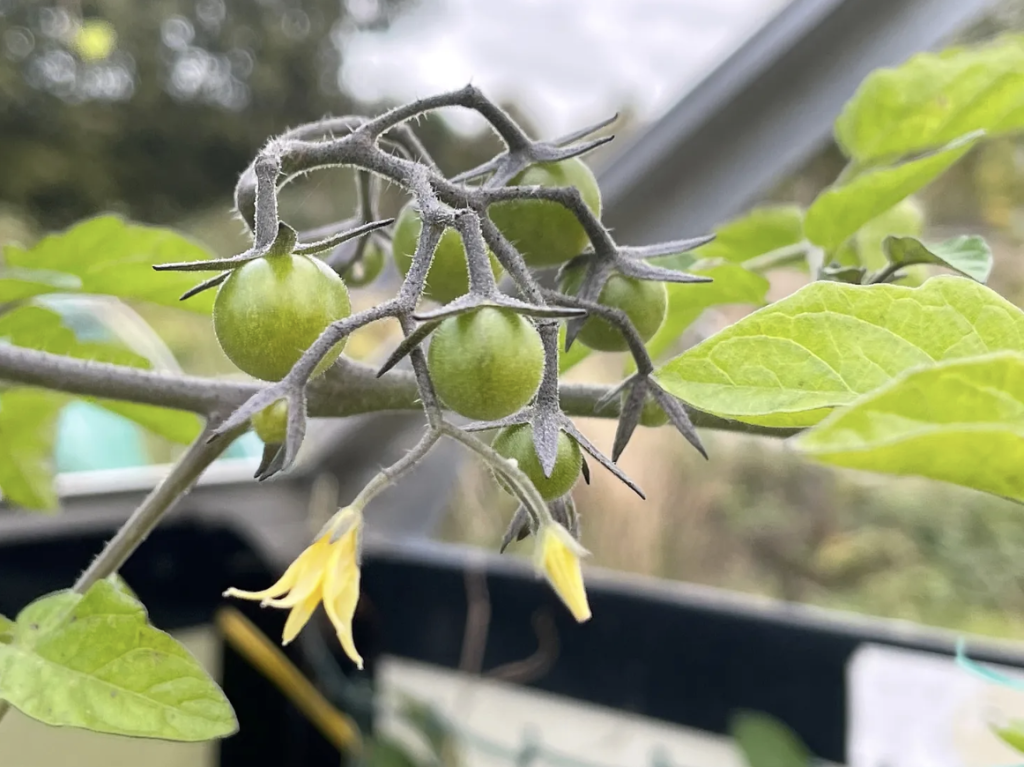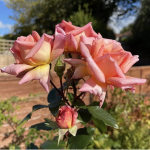On trust
I hope this autumnal weekend is soft for you. I spent it with fellow Nature practitioners and with my family – exploring the fourth currency of our times: trust (there’s also time, money and energy). Even now, in mid-October, Nature trusts us with its bounty, opening new flowers and bearing fruit in our gardens. I walk between our garden and allotment, admiring new lavender buds, opening roses and cherry tomatoes still shaping up on our plot. This must mean a soft, warm autumn ahead of us, but I also wonder: do we deserve this trust?
As I look around me, most people haven’t noticed Mother Nature’s announcements – not even the COVID one. Stay home. Travel locally. Re-think your way of life to maybe, possibly, save your home and the planet. In fact, many people around me travelled abroad more this year than ever before. This complete disconnect between eco-conscious views and our inability to shift our annual family holiday habits is simply terrifying to me. In fact, it has resulted in certain symptoms of eco-anxiety: I notice every single plane landing and departing over our city; I panic watching struggling trees (their leaves look quite unwell this year); I grieve the buzz of birds now again hiding in the hedges from mad, speeding cars…
I feel that we are betraying Her.
The loss of trust hurts and causes harm. The repair takes a lot of time, energy and mutual intention to re-connect. Sometimes, it’s not possible.
This week, a man who attempted to copy my business idea in another country posted on his profile: “I always cared about workplace wellbeing…so here is my work on the topic”, and so I called him out. Directly, his profile, in front of his friends, reminded him that I inspired his ideas on the topic. Because it is not the first time this person has broken my trust. It was the second time, and in my world, everyone gets two. That’s it.
Elsewhere, on Twitter, practitioners gathered around a certain mental health “celebrity” bully to share their experiences of being verbally abused and unfairly blocked for simply questioning her lack of critical thinking. I was even warned that some of those people had their Twitter accounts reported too. It’s sad. It’s marvellous, however, how we navigate to our tribe, to the people we trust – even if we may not know them offline. I made new Twitteratti friends.
Of course, we cannot “cancel” someone for making a mistake, but we must expect a level of integrity. It’s okay to admit making mistakes and having gaps in knowledge (in fact, that is how we learn and grow!). In coaching and therapy, repair after admitting a mistake by the professional leads to increased levels of authenticity and trust.
It is not okay to steal ideas, take credit for them, abuse people and destroy their online reputation due to a broken, small ego. It’s unkind. And it is certainly not sustainable.

So, as we enter winter months, I think about the world of digital well-being and those of us who don’t trade in money or time but in energy and trust. Those of us who strive for honesty, integrity and a little bit of healthy ego, too. Those of us who come together collectively to lift each other up, not to forget or leave behind.
I just hope we won’t forget about Her, Mother Nature. I hope we won’t forget our most visceral roots and will credit her for the most important form of trust and energy: life.
(Reflection)
A lot is said about the toxicity of social media, but not much about our individual and collective obligation to curate (choose carefully and organise) our sources. Given an opportunity, we happily assume that we all agree: social media is the cause of all our suffering. It doesn’t have to be. Often, however, we prefer to outsource our responsibility to choose the right company online to algorithms. Here is a gentle reminder: if you find your social media experience toxic and upsetting, you chose to follow the wrong people and sources of information – it is your responsibility to curate your online community. You need to choose who you trust online. Unlike with traditional radio or TV channels, you have full control over what you see in your streams – you can even train your adverts to display relevant content these days.
Q: How much time do you spend choosing your online sources? How often do you reflect on how the online behaviours of people you follow impact your mental health and well-being? Can you think of any specific online accounts that make you feel anxious, upset or “not good enough”? Can you think of anyone who posts useful, uplifting, supportive content? Can you think of a moment when others stood up for you online, comforted you, and offered a tip without even being promoted? What if your curated social media experience was fully designed by you? What would be the impact on your well-being then?
(I am off to make a cup of mint tea and calm my eco-anxiety. Many of my friends do work towards climate recovery, and I should listen to my own advice and shift my focus to them.)
This post was originally posted on Substack in our Syl’s Liberation Psychologies Newsletter.

